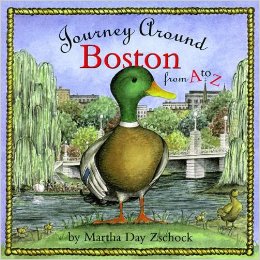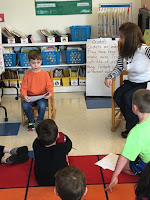Thanks for joining our success celebration. It is difficult to showcase the amount of learning that occurred throughout this amazing kindergarten year. The process of learning to be kind, and independent students is hard to describe. Learning is a process that occurs through hands on experiences, exploration, mistakes and interaction with others. As we celebrate all that we have achieved. Click on the link below and experience what can be created through the process of learning to read, research and write.
Listen to the authors read original nonfiction animal stories.
Thursday, June 16, 2016
Tuesday, June 14, 2016
Monday, May 23, 2016
Week 26 & 27
Ipswich River Sanctuary was an absolute smash. The students were able to explore, in a hands on way, the ecosystems right here in our back yard. As our ongoing reading, writing, and pond life science unit continue we are constantly able to learn and make connections to our class work.
Check out the scientific minds of room 177...





This field trip was a great way to engage the researchers of room 177. The notes that were taken at the vernal pool, the river, and pond helped students make sentences packed with adjectives and onomatopoeia.
We spent the week rotating through research centers and taking research notes. (see the enclosed pictures) We explored several Eric Carle classics and reviewed story elements in anticipation of end of the year assessments. We have completed all of the Fundations units and are now reviewing letter formations and sight word spelling.
Important books:
The kids reviewed this book and decided on a new ending.
Ask your child about Hey, Little Ant. Would you squish an ant if you had the chance?
In Reading:
- Fact vs fiction
- Ask and answering questions about character traits
- Retelling to include events in sequence
- Fluency, reading with increased speed with each repetition
- Sight Words, please review these with your kindergartner
In Writing:
- Learning the features of nonfiction text, (Title, heading, table of contents, pictures with captions, diagrams etc.)
- Independent writing project (butterflies, frogs, & ladybugs)
- Observation Notebooks


In Math:
- Comparing shapes; triangle, square, rectangle, hexagon, and circle
- Comparing sides, corners and orientation of shapes. Ways to constructs shapes.



In Science:
Our Observation stations:
Hooray! Up, up, and away we set six healthy butterflies free in the Butterfly Garden.
We are gardener helpers. We grew ladybugs and released them to help the plants in the Butterfly Garden thrive too!! Unfortunately, none of our tadpoles made it to the froglet stage. We had to dump the pond water in the woods. The scientists of room 177 were very thoughtful when trying to think about why that might have happened.







Our Observation stations:
Hooray! Up, up, and away we set six healthy butterflies free in the Butterfly Garden.
We are gardener helpers. We grew ladybugs and released them to help the plants in the Butterfly Garden thrive too!! Unfortunately, none of our tadpoles made it to the froglet stage. We had to dump the pond water in the woods. The scientists of room 177 were very thoughtful when trying to think about why that might have happened.







In Social Studies:
- Learning home addresses
- The seven continents, naming, and recognizing them by shape
Guiding Questions:
Where do we live? What state?
Tell me about Boston.
How do things change in spring?
What will be different about where we live in the summer?
Plants grow, change and reproduce by seeds, What other living things grow and change?
How do you spell your last name? (some friends are still having some difficulty.
Saturday, May 7, 2016
Week 25 & 26
Last week we learned about where we live. Students learned the names and shapes of all seven continents. We learned the continent song!!! It was lots of fun.
We then turned our focus to "Me on the Map." We discussed North American, The United States of America, Massachusetts, and Burlington. Pleas be sure your child knows his or her own address as we will be sending invitations and writing our address on a picture of our homes.
In preparation for the Legoland field trip we spent lots of time building, and discussing spring weather. However, a large portion of class time was spent making the connection between our Social Studies unit and the Lego "Mini Boston Museum." We read the beloved classic Make Way for Ducklings, by Robert McCloskey looked for all of the landmarks in the story and then read Journey Around Boston from A to Z by Martha Aschock. Students became familiar with several landmarks around our states capital and were able to appreciate seeing the " Mini Lego" versions at Legoland.



This week we launched a comprehensive literacy unit on pond life with a focus on insects. Students have been learning how to conduct research and write nonfiction text.We are off and learning about insects...We introduced an Observation station for all of our new creepy crawlers: tadpoles, caterpillars and ladybugs.The writer's of room 177 have been busy taking notes and turning the notes into text. We learned to organize information and check facts for accuracy. As research writer's we are learning to ask questions and use resources like; books, an ipad, photos and videos to get the answers. Mrs. Small has been in class supporting this project and providing appropriately leveled library books. Thanks Mrs. Small your help has been wonderful.
We then turned our focus to "Me on the Map." We discussed North American, The United States of America, Massachusetts, and Burlington. Pleas be sure your child knows his or her own address as we will be sending invitations and writing our address on a picture of our homes.
In preparation for the Legoland field trip we spent lots of time building, and discussing spring weather. However, a large portion of class time was spent making the connection between our Social Studies unit and the Lego "Mini Boston Museum." We read the beloved classic Make Way for Ducklings, by Robert McCloskey looked for all of the landmarks in the story and then read Journey Around Boston from A to Z by Martha Aschock. Students became familiar with several landmarks around our states capital and were able to appreciate seeing the " Mini Lego" versions at Legoland.
This week we launched a comprehensive literacy unit on pond life with a focus on insects. Students have been learning how to conduct research and write nonfiction text.We are off and learning about insects...We introduced an Observation station for all of our new creepy crawlers: tadpoles, caterpillars and ladybugs.The writer's of room 177 have been busy taking notes and turning the notes into text. We learned to organize information and check facts for accuracy. As research writer's we are learning to ask questions and use resources like; books, an ipad, photos and videos to get the answers. Mrs. Small has been in class supporting this project and providing appropriately leveled library books. Thanks Mrs. Small your help has been wonderful.
Guiding questions:
Tell me about where we live.
Do you know the names of the continents?
Which Boston landmark are you most interested in? Why?
Tell me about Mr. and Mrs. Mallard from make way for Ducklings?
What is the difference between a fact and opinion?
Find things around the house that are the same...height, length, width?
Find things around the house that are the same...height, length, width?
Point out how things are sorted? ( color, shape, size, common feature)
Friday, April 15, 2016
Week 24
Thanks to Miss. Bransfield!!!
Miss. Bransfield generously gave each one of our kids a picture book to add to his/her own home collection.
What a wonderful surprise.








Miss. Bransfield generously gave each one of our kids a picture book to add to his/her own home collection.
What a wonderful surprise.
Spring is a season that lends itself to our life cycles theme wonderfully!
This week we began a four week integrated language unit on life cycles.
We are using plants as way to teach research strategies, scientific language, how to use writing tools, the features of non fiction text and extracting fact from fiction. Our goal is to give students the strategies for becoming researchers and writers independently.
Your child brought home his/her sunflower sprout. Please take care of it and help your child make observations as frequently as possible. Track it's growth and talk about ways to measure the plant.
Important books:
This weeks objectives...
Phonics:
- Attend to upper and lowercase letters in a sentence.
- Listen and differentiate long and short vowel sounds
- Sight words integration with writing. (sight word assessment will be given after vacation)
- Punctuation, periods for declarative sentences, question marks for interrogative sentences.
Comprehensions:
- Identifying main idea and supporting details
- Fact vs opinion
- Character traits
- Circular endings, when a story could begin again
- Making categorized lists
- Revising narratives
- Adding emotion to narratives (descriptors)
- Using similes and metaphors to help the reader.
Math:
- Subtraction facts to five fluency
- Measuring length, height, and capacity
- Standard unit of measure
Science:

- Parts of a plant
- What is a cycle
- Spring, observations
Guiding Questions:
Why does temperature impact the growth of plants?
Name some things that are living? How can you tell?
How can we measure liquid?
Why do authors use similies like, "as quick as a cricket"?
Can you use character traits to describe ...?
Tell me about the life cycle of a flower?
A look ahead ...
We will study the art work of Eric Carle and create a spring collage.
Subscribe to:
Comments (Atom)
























